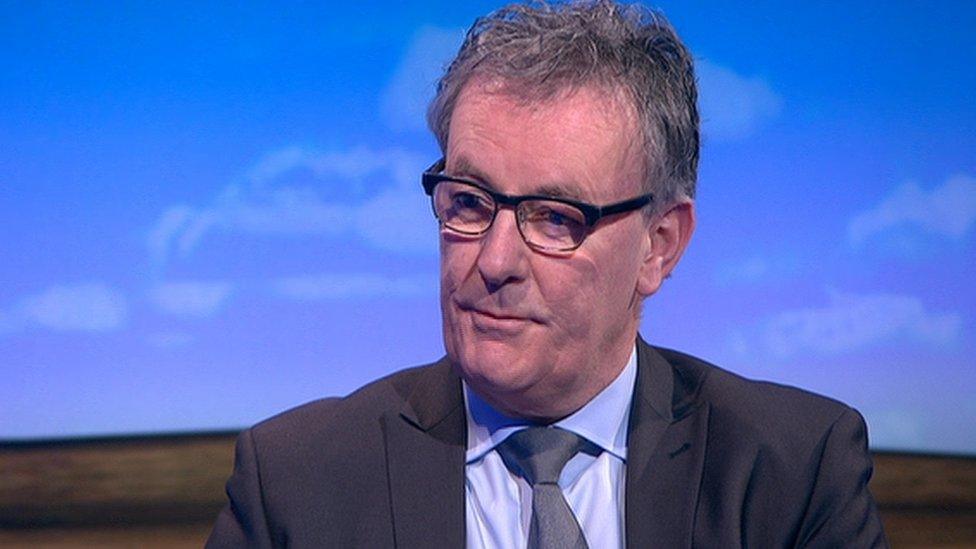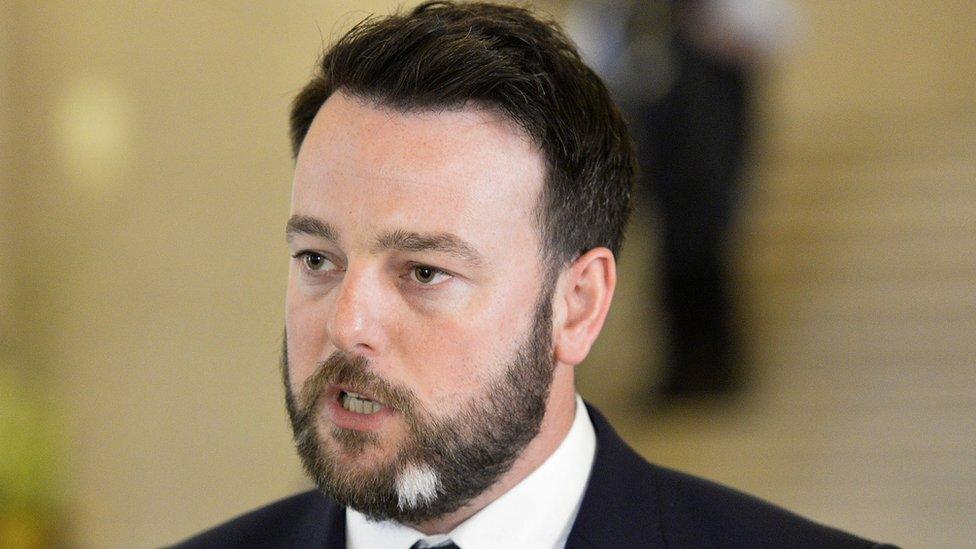Traditional Northern Ireland voting habits die hard
- Published

Ulster Unionist leader Mike Nesbitt has said he will select the SDLP as his second preference after the UUP on his ballot paper in March's election.
If a week can be a long time in politics, then two years is an eternity.
In March 2015 the Ulster Unionists proudly unveiled a pact with the DUP covering four constituencies.
Mike Nesbitt said the aim was to "get the pro union vote out".
The SDLP denounced the tactic as a "sectarian carve up".
In February 2017, the Ulster Unionist leader told the BBC's Sunday Politics that he would be giving the SDLP candidate in East Belfast his second preference.
The SDLP leader Colum Eastwood didn't return the favour quite so emphatically, but did tell Mark Carruthers he would be giving the Ulster Unionists a transfer vote at some unspecified point on his ballot paper in Foyle.
So what's changed?
First, Westminster elections, where the winner takes it all, are a different beast from Assembly polls.
In a Stormont contest, voters get multiple chances to influence the outcome.
Moreover, in the intervening two years we have seen both the Ulster Unionists and the SDLP moving into official opposition mode.
The Ulster Unionist leader has loudly proclaimed his "Vote Mike, Get Colum" strategy.
Then to cap it all the DUP Sinn Féin led executive fell apart amidst mutual recriminations over the grossly mismanaged Renewable Heat Incentive scheme.

SDLP leader Colum Eastwood says he will give the Ulster Unionists a transfer vote at some point
If this election really is, as Mike Nesbitt would like to portray it, a referendum on the RHI scandal, then no-one should be surprised.
Why shouldn't the opposition advise its voters to back their respective parties with the aim of pushing the old governing partners out, or at least weakening their hand in future negotiations?
However Northern Ireland elections are never that simple.
Traditional unionist and nationalist voting habits die hard.
In some seats Mr Nesbitt's candidates will no doubt be living in hope that the generosity of other unionists will see them returned in the later stages of a count.
In this context, it's easy to understand the decision by the veteran Newry and Armagh MLA Danny Kennedy to advise his voters to transfer to other unionists, even if it does jar with his leader's attitude.
So the DUP and TUV have been quick to accuse the Ulster Unionist leader of being - as Arlene Foster puts it in the Belfast Telegraph - "personally supportive of voting in a way that helps to elect nationalists, who will take their election as an endorsement of support for their United Ireland position".
Mike Nesbitt replies that the RHI scandal was not an "orange" or "green" issue and that it wouldn't make sense for him to back a DUP candidate in whom he has no confidence, like the outgoing Stormont Speaker Robin Newton.
So is this election a referendum on the Renewable Heat Incentive, a chance to pick your negotiators for wider talks on issues like Brexit and the Troubles' legacy, or - like so many past elections - a mini border poll?
Come 3 March we shall be able to judge the answer a little better by analysing not just the voters' first choices, but also by looking to see whose advice they take on where their later preferences should go.